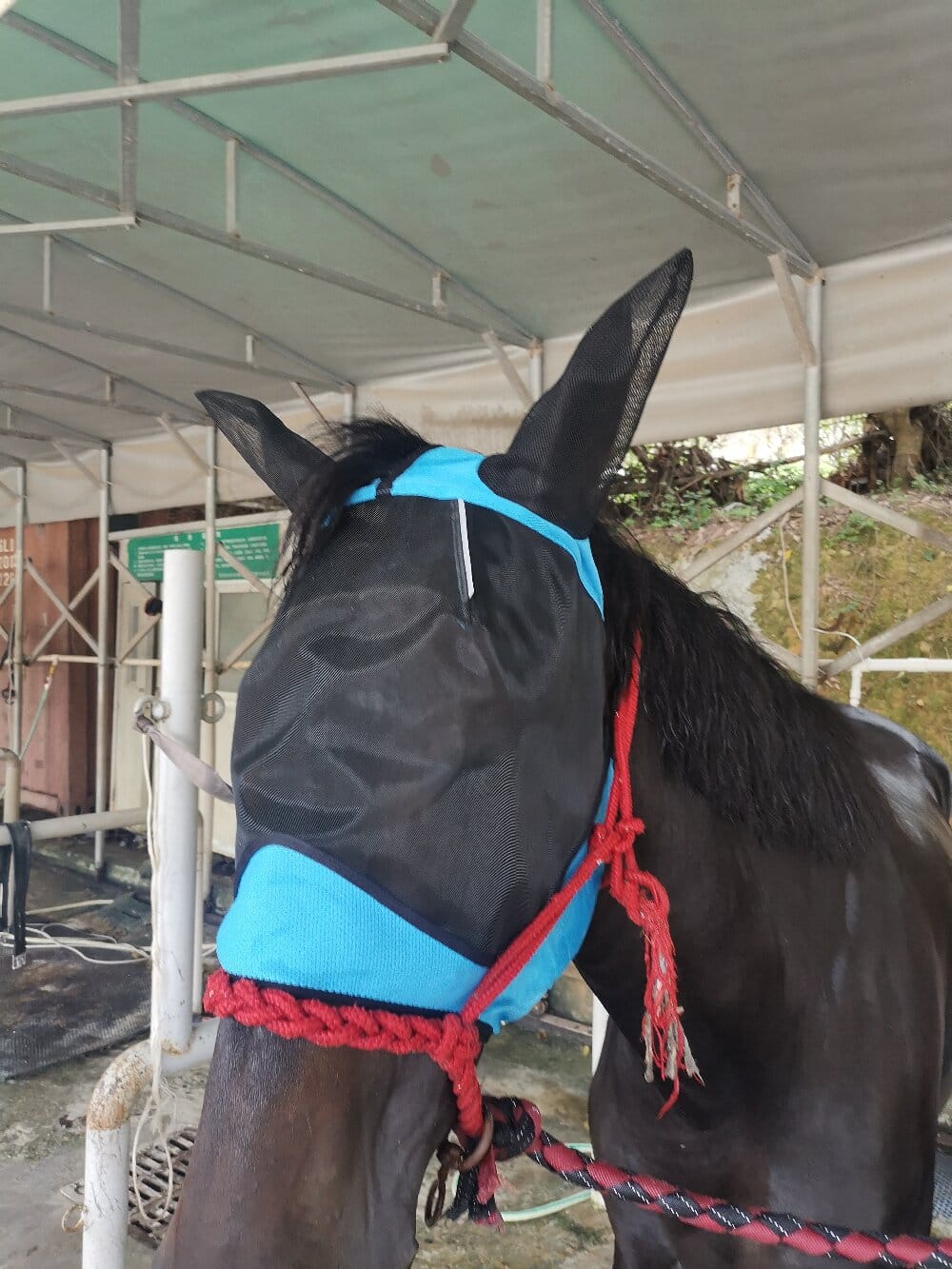A horse fly mask is an essential piece of equine gear, especially during warmer months when insects become a nuisance. These protective coverings shield your horse’s eyes, ears, and face from biting flies, mosquitoes, and harmful UV rays. Beyond comfort, fly masks help prevent infections, reduce stress, and improve overall well-being. Whether you own a competition horse or a pasture companion, investing in a high-quality fly mask can make a significant difference in their daily life.
The Benefits of Using a Horse Fly Mask
Fly masks offer more than just bug protection—they serve multiple purposes that contribute to a horse’s health and happiness. Here’s why experts recommend them:
- Eye Protection: Flies and debris can cause irritation or even corneal damage. A well-fitted mask keeps pests away while allowing clear vision.
- UV Shielding: Many masks include UV protection to guard against sunburn, particularly for horses with light-colored faces.
- Reduced Stress: Constant swatting at flies can make horses anxious. A mask minimizes this behavior, leading to calmer animals.
- Prevention of Infections: Flies carry bacteria that can lead to conjunctivitis or other eye infections. A barrier reduces this risk.
Choosing the Right Fly Mask for Your Horse
Not all fly masks are created equal. When selecting one, consider these factors:
- Material: Look for breathable, lightweight fabrics like mesh to prevent overheating.
- Fit: A snug but comfortable fit ensures the mask stays in place without rubbing.
- Coverage: Some masks protect only the eyes, while others extend to ears and muzzle. Choose based on your horse’s needs.
- Durability: Reinforced stitching and high-quality materials extend the mask’s lifespan.
Experts often recommend trying a few styles to see which works best for your horse’s temperament and environment.
Common Misconceptions About Horse Fly Masks
Despite their benefits, some horse owners hesitate to use fly masks due to myths. Let’s debunk a few:
- “Masks obstruct vision.” Modern designs use fine mesh that doesn’t impair sight.
- “Horses don’t like wearing them.” Most adjust quickly, especially if introduced gradually.
- “They’re only for summer.” In sunny climates, UV protection is valuable year-round.
Understanding these facts can help you make an informed decision for your equine partner.
Expert Tips for Maintaining a Fly Mask
To maximize the lifespan and effectiveness of your horse’s fly mask, follow these care guidelines:
- Regular Cleaning: Rinse or wash the mask weekly to remove dirt and sweat.
- Inspect for Damage: Check for tears or loose straps that could cause discomfort.
- Proper Storage: Keep it in a dry, cool place when not in use to prevent mold or fading.
- Rotate Masks: Having a spare allows one to dry while the other is in use.
By maintaining your fly mask properly, you ensure it remains a reliable tool for your horse’s comfort.
Final Thoughts on Fly Mask Essentials
A horse fly mask is more than a seasonal accessory—it’s a vital tool for safeguarding your horse’s health. From preventing painful insect bites to shielding sensitive eyes from the sun, the benefits are undeniable. By choosing the right mask and caring for it properly, you can enhance your horse’s quality of life with minimal effort. Whether you’re a seasoned equestrian or a first-time owner, prioritizing this simple yet effective gear is a decision you won’t regret.

